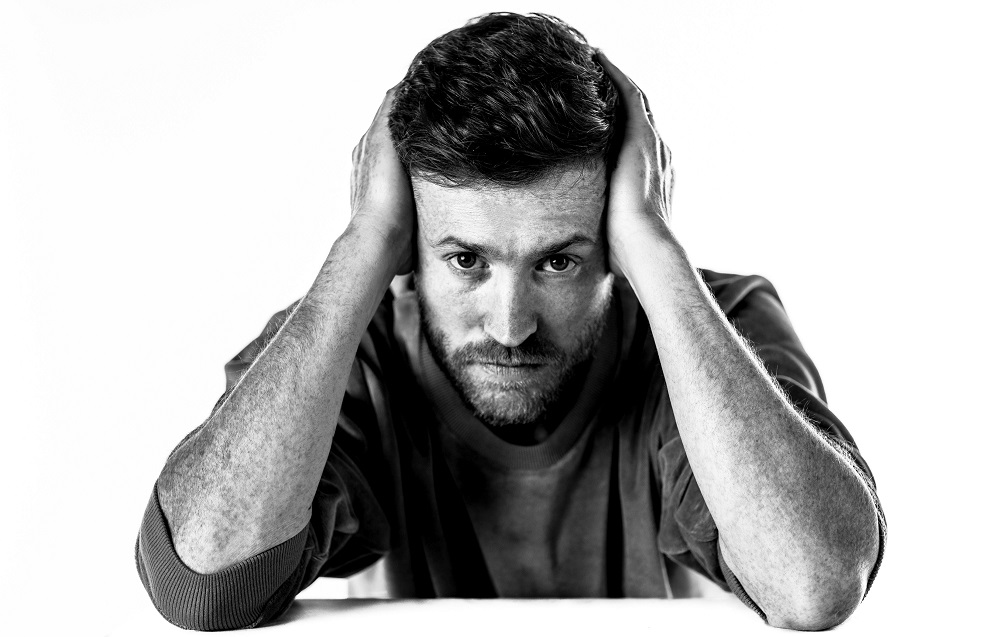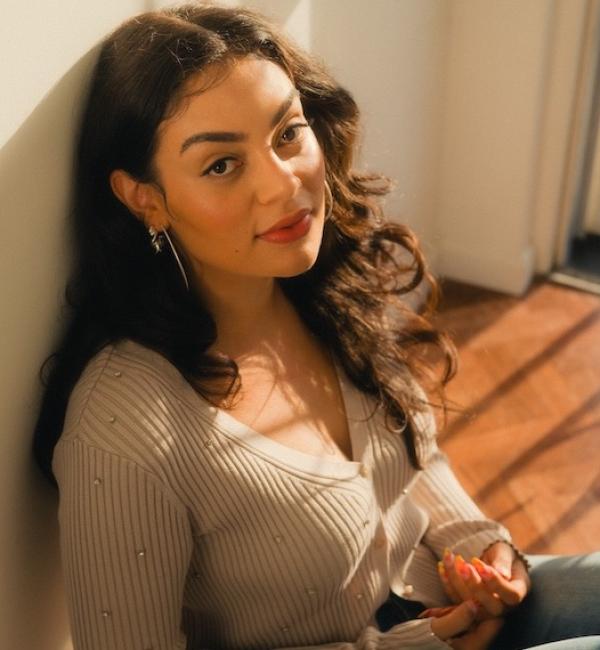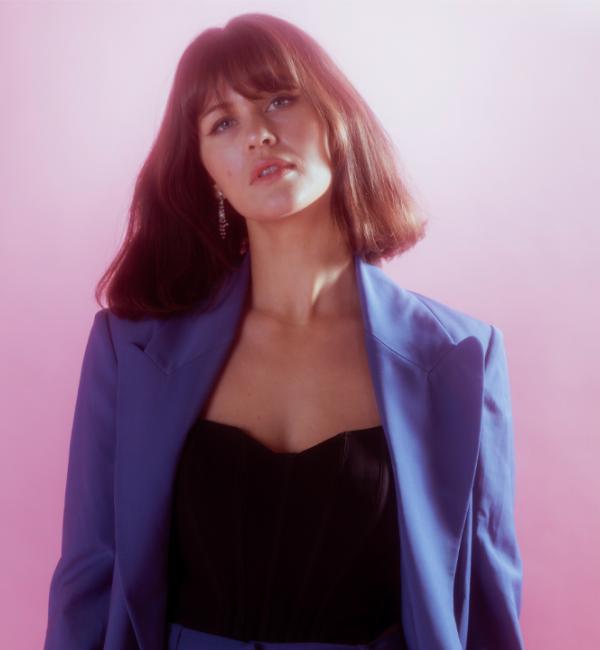
Devin Abrams gave himself a hard deadline for A Lost Light, his new album as Pacific Heights: the birth of his first child. “I started talking about my baby's release date,” he said over a Caesar salad in a Sandringham cafe. “My wife was like, 'you're a fucking idiot’, but I had to finish it before the baby came.”
Abrams, who for 15 years was a founding member of drum'n'bass band Shapeshifter, had long used Pacific Heights as an outlet during his band’s steady rise. “You have to have creative outlets when you're in a group because it's constant compromise,” he said.
But when he left Shapeshifter in 2014, Pacific Heights became his main focus (alongside his master's degree in music production), culminating in 2016 album The Stillness. “It felt like a bit of a release from the shackles,” he said. “It became a bit more indulgent rather than meeting some commercial requirements to keep the band moving forward and keeping doing music that the fans want. Pacific Heights didn't have all that expectation.”
Pacific Heights was, he said, his “truest musical personality” – it was “deep, introverted, almost morbid at times” whereas Shapeshifter is “optimistic”, a “celebration of life.”
While Shapeshifter forged ahead without Abrams, extending its international push and releasing its eighth album, The Stillness won Best Electronic Album at the 2016 New Zealand Music Awards (which Shapeshifter won in 2007 and 2013) and was nominated for The Taite Music Prize and the Silver Scroll Award, two awards which rarely include electronic music.
A year later, in 2017, with The Stillness behind him, Abrams awoke from a visceral dream and immediately started writing it down. “I've had a few of these dreams, where the whole story unfolds visually and just stays with me. I woke up from this dream and it was all there so I jotted down the whole thing in chronological order. When you make music, you search for something like that, that has the depth that you can create to.”
He knew immediately he had the narrative for a new album:
"I was this young, London-based sailor in the mid-18th Century. Just married at 18/19 years old. It was dismal times in London for a working-class man. I was passing the docks one day on the way home from work. And I heard these sailors talking about this mystical place called the Pacific Ocean. I thought, ‘that sounds amazing – how can I get on a ship and explore these waters and move my family to a better place?’
"I managed to scam myself on to one of these boats as a crew hand with no sailing experience and told my family I was going to go find us a new place to move to that's going to be warmer and a better life. So I said goodbye to the family.
"Then of course, the story takes a turn and this imminent storm is about to entirely eat this ship. And with no sailing experience, I'm starting to freak out 'cause I see the worry on the aged sailors.
"I'm thrown off the boat and am clutching for survival and each of the stages that comes after is the grieving for humanity. The first stage is the immediacy of 'fuck, this boat is not coming back for me, I'm on my own in this massive ocean'. So clutching for survival for a few days and end up washing up on some island and realising that I'm there alone. I might not see my family again. So living with that for several years is the next part of the story.
"The final stage is, if there's no humanity, is it worth living? That's the question that the last song I sing ends with. Hence A Lost Light. If the light of humanity is gone, is it worth living? That's the question that finishes the album. And it's a beautiful production where it could be a very optimistic goodbye to life but it could be a sad one. Like fuck, the whole story's over."
The entire arc of the album is based around the story. “In some ways I was trying to soundtrack what I thought would be the visuals but the first port of call was what was the intuitive emotional feeling. Trying to recall what I felt at each stage of that dream. So that it was honest. I wanted it to be like what it felt like in that dream – to be in a huge ocean. Alone. It was informed by the emotional response, but writing those chapters down. Whatever I could write down I could.”
He took the dream and the production sketches he’d made and shared it with a group of vocalists, sometimes writing the vocals himself, but more often just trusting what his collaborators – Dallas Tamaira (aka Joe Dukie) of Fat Freddy’s Drop, Julia Catherine Parr of Physical, Neil Macleod, Edie and Motte – would come back with.
“I love collaborations because you get these wonderful interpretations of your music,” he says. “I gave the whole story in a snapshot to these artists and left it with them and see what they came back with. You have to give liberty to artists to let them be themselves. What's the point of a collaboration if you don't give that person the ability to be free? If you just say 'do what you did on that track, bring that to me' they might not want to do that and you don't get the best outcome. You have to give people liberty.”
But there’s another important voice permeating the album – Abrams himself. Sometimes when he was recording demos of his vocal ideas to give to his collaborators, he was struck by his own take and kept that instead of bringing in others. He said he doesn’t consider himself a singer, but could capture a brutal honesty in a take, often when he was least expecting it. “If I felt a rush or I heard the passion in that take, then I run with it. It's still nerve-racking to sing live because I'm definitely not a vocalist, but I became a vocalist by realising as the producer that sometimes that first take of a song is going to be the best, emotionally.”
And that’s what A Lost Light is – an emotional journey from hope to despair and then to something harder to pin down, something the listener has to come to terms with themselves.
The album begins with a dreamy optimism. The Greystone is light and chiming, with playful electronic minimalism. It sounds like sun glistening off the stillest ocean. Lost In A Dream conjures the rush of the wind and the speed of sailing into the future. The End Is In Sight is a false sense of arrival, curious and wide-eyed. The Colour Of The Night is when things darken. The wind picks up and starts to scatter, pulling the listener in multiple directions at once.
Calling Home is the beginning of the loneliness and desperation. Sinister synths rise from the slow drums, doubt is creeping in. Forgotten Times and Frozen Tears are moments of solemn reflection. The chaos has calmed but disaster is eminent. My Dear Love Part 1 and A Lost Light are an acceptance of death, filled with lonely piano lines and contemplative space. But My Dear Love Part 2, the album’s closer, is a string-filled lift. There’s a feeling of reunion, but is it with those we’d left, or those that left us? Are we saved or dead? Did we reach safety or salvation?






